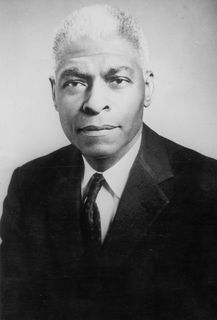A Quote by Jon Ronson
There is no evidence that we've been placed on this planet to be especially happy or especially normal. And in fact our unhappiness and our strangeness, our anxieties and compulsions, those least fashionable aspects of our personalities, are quite often what lead us to do rather interesting things.
Related Quotes
Schwartz's research suggests something important: we can stretch our personalities, but only up to a point. Our inborn temperaments influence us, regardless of the lives we lead. A sizeable part of who we are is ordained by our genes, by our brains, by our nervous systems. And yet the elasticity that Schwartz found in some of the high-reactive teens also suggests the converse: we have free will and can use it to shape our personalities.
True piety admits no other rule than that whatsoever things have been faithfully received from our fathers the same are to be faithfully consigned to our children; and that it is our duty, not to lead religion whither we would, but rather to follow religion whither it leads; and that it is the part of Christian modesty and gravity not to hand down our own beliefs or observances to those who come after us, but to preserve and keep what we have received from those who went before us.
From our best qualities come our worst. From our urge to pull together comes our tendency to tear each other apart. From our devotion to a higher good comes our propensity to the foulest atrocities. From our commitment to ideals comes our excuse to hate. Since the beginning of history, we have been blinded by evil's ability to don a selfless disguise. We have failed to see that our finest qualities often lead us to the actions we most abhor, murder, torture, genocide and war.
There are a lot of voices inside of us. We have the voices of our parents, our grandparents, our society, our bosses, our own should's and shouldn'ts, and our self-worth is in us, controlling us a lot. When we can get past all of those, and get to the deep, core part of us, there's a voice within our soul that I believe is connected to our Divine or Higher Self. That voice within is there to guide us through all aspects of our lives.
Once we begin to feel deeply all the aspects of our lives, we begin to demand from ourselves and from our life-pursuits that they feel in accordance with that joy which we know ourselves to be capable of. Our erotic knowledge empowers us, becomes a lens through which we scrutinize all aspects of our existence, forcing us to evaluate those aspects honestly in terms of their relative meaning within our lives. . . .
To me, the human move to take responsibility for the living Earth is laughable - the rhetoric of the powerless. The planet takes care of us, not we of it. Our self-inflated moral imperative to guide a wayward Earth, or heal our sick planet, is evidence of our immense capacity for self delusion. Rather, we need to protect ourselves from ourselves.
Let us not be blind to our differences-but let us also direct attention to our common interests and to the means by which those differences can be resolved. And if we cannot end our differences, at least we can help make the world safe for diversity. For, in the final analysis, our most common link is that we all inhabit this small planet. We all breathe the same air. We all cherish our children's future. And we are all mortal.
The love of God again makes us free, for it draws us to set a low value on those things wherein we are subject to others - our wealth, our position, our reputation, and our life - and to set a high value on those things which no man can take from us - our integrity, our righteousness, our love for all men, and our communion with God.
The object of our being placed upon this earth is that we may work out an exaltation, that we may prepare ourselves to go back and dwell with our Heavenly Father; and our Father, knowing the faults and failings of men has given us certain commandments to obey, and if we will examine those requirements and the things that devolve upon us we will find that they are all for our individual benefit and advancement. The school of life in which we are placed and the lessons that are given to us by our Father will make of us exactly what He desires, so that we may be prepared to dwell with Him.
When we make a change, it's so easy to interpret our unsettledness as unhappiness, and our unhappiness as a result of having made the wrong decision. Our mental and emotional states fluctuate madly when we make big changes in our lives, and some days we could tight-rope across Manhattan, and other days we are too weary to clean our teeth. This is normal. This is natural. This is change.

































